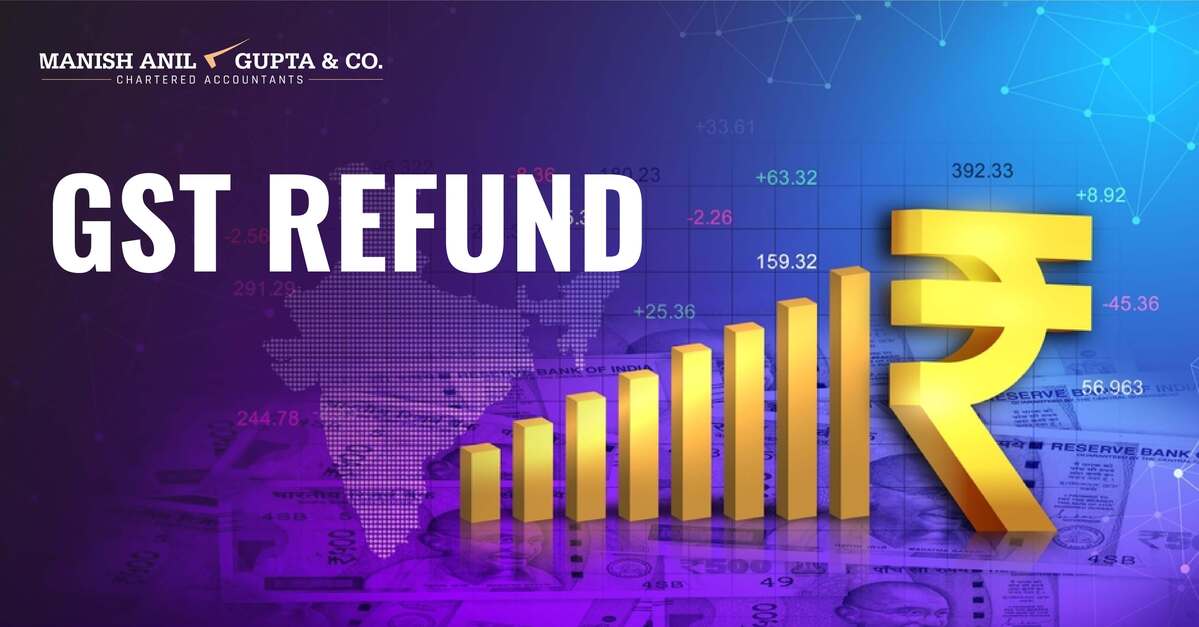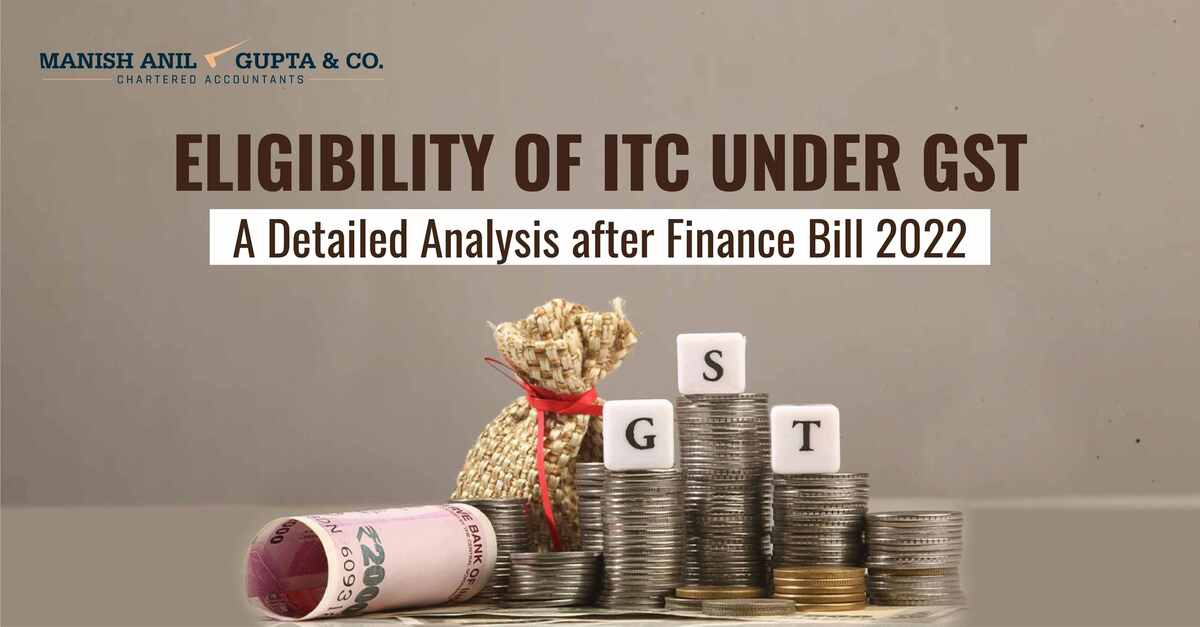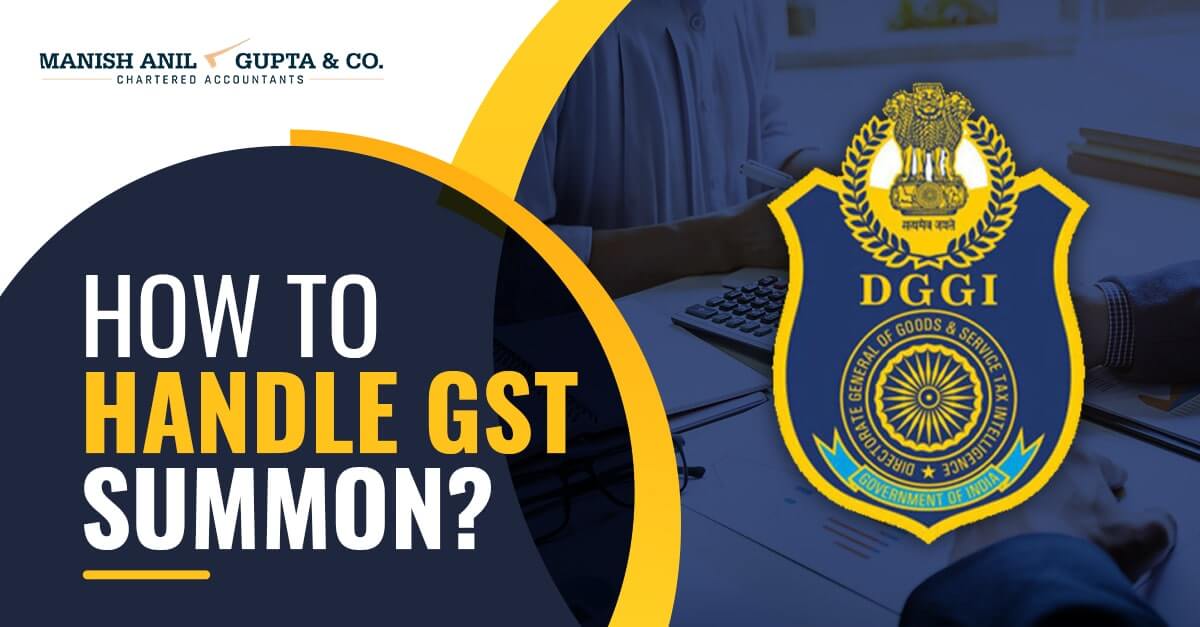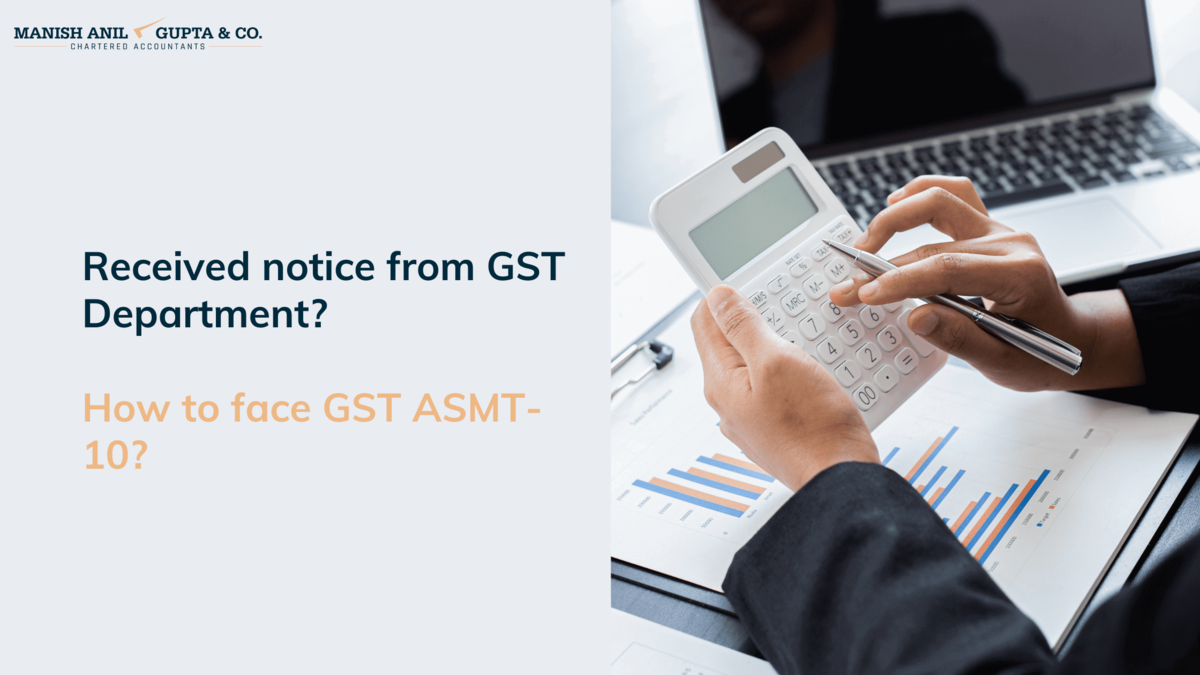GST Audit at MAG
Our team can deliver following in GST Audit:
- Monthly comparison of Input Tax Credit between returns and books of accounts
- Finding mismatch or discrepancies in ITC
- Consultancy on eligibility, reversals or re-claim of ITC
- Monthly review of output tax liability
- Reconciliation of value of supply declared in annual returns with audited financial statements
- Applicability and treatment of transactions covered under Reverse Charge Mechanism(RCM)
- Recommendations on better internal controls for increasing efficiency
- Providing cost of non-compliance matrix
- Timely providing of reports or statements mandated under GST law
What is GST Audit?
GST audit means an examination of statements, records, returns and related documents furnished by the registered persons. GST Audit is conducted to verify whether the sales, output tax paid, input tax refund claimed, and ITC availed stated in his annual report are true and fair or not. GST audit is a reconciliation statement of audited financial statements with the annual return furnished. Further, a GST audit also assists in assessing whether the taxpayer is obedient with provisions of GST.
MAG is the best
GST Audit Firm in West Delhi. We have a team of experienced
GST consultants in Delhi to provide you with the best audit services.
For whom GST Audit is compulsory?
Section 35(5) of CGST Act,2017 provides that
every registered person whose turnover in a financial year exceeds the amount of Rs. 2 crores, is required to get his accounts audited by a CA or CMA. He shall submit following with the
GST Annual Return filed by him:
1) Copy of audited financial statement;
2) Reconciliation statement (Form
GSTR-9C); and
3) Other prescribed documents
The term 'turnover' is not defined under the GST Act. However, aggregate turnover is defined under section 2(6) of CGST Act. Accordingly, aggregate turnover refers to
the value of all outward supplies (taxable + exempt + exports + inter-state) of a person with the same PAN. It excludes any taxes levied under the GST Act itself. Also, inward supplies on which RCM is applicable is not taken into account for calculating aggregate turnover.
An auditor should cover the following points while performing an audit assignment under GST:
1 Registration Certificate
- Whether new registration has taken or migrated from the old regime
- Details of business verticals, Factory, Warehouse, ISD etc
- Whether the additional place of business is included in the registration certificate
- Whether any amendments required
2 Invoicing and related Documentations
- Whether Tax Invoice or Bill of Supply issued as per the provisions contained in GST law
- Whether receipt vouchers issued in case of receipt of advance
- Whether proper credit note/debit note issued as per GST provisions
- Check correctness of Invoicing.
- Whether delivery challan/e-way bills issued and maintained properly
- Whether transport documents properly maintained and verified
- Whether a unique series of invoicing is given as per the requirements of the law
3 Supply
- Whether supply is correctly classified under Taxable, exempt, export, non-GST, zero-rated, nil-rated, supplies to SEZ, deemed exports etc.
- Whether transaction falls under the scope of supply or not
- Identification of supply as Inter-state or Intra-state
- Whether supply is a composite supply or a mixed supply
- Proper classification of supply, i.e. supply of goods or supply of services
- Transactions related to goods sent for job work
- Whether supply falls under negative list
4 Time of Supply
- Whether TOS of goods determined as per sec 12 of CGST Act
- Whether TOS of services determined as per sec 13 of CGST Act
- Whether TOS in case of reverse charge is properly dealt
- Whether any changes in the rate of GST is dealt with sec 14 of CGST Act
- TOS treatment in case of continuous supply of goods or services
5 Input Tax Credit
- Check ITC availed with invoices
- Check inward supply records and reconcile with invoices of vendors
- Reconciliation of inward supplies records with monthly returns
- Check restricted credits like blocked ITC and ITC for non-business purposes, ITC against exempt outward supplies etc.
- Check the adjustment of taxes, i.e. set-off with the ITC or payment in cash
- Check ITC on capital goods correctly claimed
- Check whether reversals of ITC done whenever required
- Any reversals in case of goods sent for job work
- Whether the recipient of supply has made the payment within 180 days of the invoice
- Check whether the documents based on which ITC claimed have the required particulars as per law
- Check proper treatment of ITC in case of Credit Notes/debit notes
- Check whether appropriate bifurcation of ITC made as per the rules under GST
- Check reconciliation of ITC claimed in GSTR-3B with auto-populated data in GSTR-2A
- Check transitional credits properly
- Any reversals of ITC from the change of schemes and other circumstances
6 Classifications
- Whether the classification of goods or services as per schedules or notifications
- Whether HSN/SAC taken as per law
- Check whether any specific advance ruling applicable
- Check whether any change in tax by way of any notification or exemption notification
7 Input Service Distributor
- Whether registration take as per law separately
- Whether the distribution of ITC done as per the law
- Whether turnover for determining the amount of ITC is calculated correctly as per law
- Whether ISD invoice is issued properly
- Whether proper distinction of eligible or ineligible credit done before distributing ITC
8 Returns
- Review all returns filed by a registered person
- Reconcile GSTR-9 with GSTR-1 and GSTR-3B
- Check interest liabilities, if the interest is payable, whether paid or not
- Check late fees paid adequately while filing the return
- Whether amendment details filed correctly in the return
9 GST collections and payments
- Whether timely payment of due taxes made
- Check taxes paid under incorrect heads, i.e. IGST paid in place of CGST & SGST and vice-versa
- Check whether any excess collection of tax
10 Reverse Charge
- Check the compliance of provisions of sec 9 of CGST Act
- Check whether RCM paid under incorrect heads
- Check corresponding ITC on RCM correctly claimed
- Whether conditions of paying tax under RCM fulfilled
11 Value of Supply
- Check all inclusions in the amount of supply correctly done to arrive at the value for taxability as per section 15 of CGST Act
- Whether treatment of discount correct
- Whether valuation rules apply correctly wherever applicable
12 Place of Supply
- Identification of Intra/Inter-state supply
- Whether conditions of inter-state supply fulfilled
- Whether conditions of intra-state supply fulfilled
- Whether conditions of export fulfilled
- Whether export made under LUT/Bond
- Whether exports with payment of GST
- If the supplier is an intermediary, requirements fulfilled or not
- Whether supplies correctly reported in returns, i.e. exports, imports, etc
13 Refunds
- Whether the supplier is eligible for claiming the refund
- Whether any application for refund filed, any refund sanctioned.
- Any refund re-credited to E-cash ledger
- Check any wrong claim of refunds
14 Inward Supplies
- Proper classification of inward supplies into intra-state, inter-state, imports etc
- HSN classification of inward supplies
- Check inward supplies with monthly returns
- Check register of inward supplies whether any deviations from the invoices in possession.
- Check whether ITC included in cost whose ITC is not allowable
- Check any deletion or destruction of fixed assets
- Check whether any stock is stolen or theft whose ITC has been claimed.
15 Maintenance of Books of Accounts
- Whether books of accounts and records maintained as per the applicable provisions of GST law
- Check how records are kept - Manual or Electronic
- Whether a separate set of books maintained for each place of business
- Whether all required registers under GST maintained as per the law
16 General
- Whether Anti-profiteering clause complied
- Are there any department proceedings or inspections in force
- Check carefully significant points in statutory, internal audit reports
- Check all adverse aspects in previous year reports
- Check any judicial pronouncement that can apply to the registered person
- Be careful of any unusual transactions
- Discuss every adverse point in your findings with the client
- Use appropriate audit tools during the audit
How is GST Auditor appointed?
A registered person can appoint a GST auditor at the beginning of the year. Auditors can be selected by the following:
Proprietor - In case of sole-proprietorship
Partner - In case of Firm or LLP
Board of Directors - In case of Companies
What are the records examined by a GST Auditor?
Below are the records and documents examined by the auditors while performing audit procedures:
- Register of Outwars Supplies
- Register of Inward Supplies
- Inventory Register
- Ledgers of expenses
- Register of Input tax credits
- ITC claimed and utilized
- GST payables and actual payments
- Generation of e-way bills
- Any other necessary documents or records for the period relevant to the audit
Comments required by an Auditor
In case auditor discovers any mismatch in the accounts and records, he shall add comments on such a mismatch in the reconciliation statement in Form GSTR-9C.
Submission of GST Audit report
An auditor shall report the following things:
- Whether records and transactions correctly kept and maintained
- Whether Financial Statements prepared, conform with the books of accounts
- To confirm the authenticity of the information in GSTR-9C.
- To mention any observations or comments in report thereof.
What is the penalty for not filing GST Audit Report?
GST Act does not specify a specific penalty for not submitting GST audit report. However, as per general provisions, a general penalty of Rs 25,000 is applicable.
For GST Audit services in Delhi reach us at
info@manishanilgupta.com

Rahul Garg
Director-Taxation & Compliances
“Don’t Be Intimidated By What You Don’t Know. That Can Be Your Greatest Strength And Ensure That You Do Things Differently From Everyone Else.” .
View Profile
Discuss with expert
















